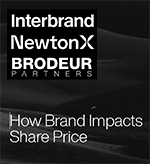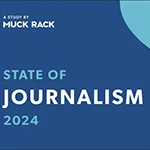 |
While a large majority of Facebook users say that they visit the platform at least once a day, they are more evenly split as regards their level of trust in Facebook and the brands that advertise on it, according to the results of a new survey from Lippe Taylor.
More than eight out of 10 of the 1,000 Facebook users surveyed (86.5 percent) said they check in at least daily, with the remaining 13.5 percent saying they use the platform at least once a week.
When it comes to how much they trust the information they get from those frequent visits, almost half (46.2 percent) said they usually believe what they read in Facebook posts, with 6.8 percent saying they always trust that information. On the other side, 38.6 percent said they rarely trust Facebook content, with another 8.4 percent saying that they always assume the platform’s content is not trustworthy.
That split also holds for the brands that advertise on Facebook, with 46.8 percent saying they usually trust those brands and 5.1 percent saying they always trust them. The naysayers include the 38.6 percent who say they rarely trust those brands and the 7.4 percent who always assume that those brands are untrustworthy.
When asked if they thought Facebook as a company deserved their trust, 16.6 percent said they strongly agreed, with 42.8 percent saying they slightly agreed, 24.4 percent slightly disagreeing and 16.2 percent strongly disagreeing.
The top concern that respondents had with Facebook was its stance on personal data privacy, which was cited by over half (55 percent). Other pressing issues included monitoring hate speech (43 percent) and issues surrounding the Black Lives Matter movement (41 percent).
Less than a third (29.1 percent) of respondents said that they were aware of the movement among advertisers to boycott Facebook.
However, a majority said that whether or not a brand boycotts Facebook did not have a significant impact on their decision about buying from that brand.
When asked if they would be more likely to buy from a boycotting brand, 32.6 percent agreed, while 14.8 percent would be less likely to purchase from such a brand, and 52.6 percent said it would not affect their purchasing decision. Only 12.4 percent said they would more like to buy from a non-boycotting brand, while 30.2 said they would be less likely to buy from the brand, and 57.4 percent said it would make no difference.


 Consumers who once demanded convenience now require consistent, multi-channel experiences that cater to them at every point. Brands must have a clear, audience-appropriate, and channel-specific voice across all platforms.
Consumers who once demanded convenience now require consistent, multi-channel experiences that cater to them at every point. Brands must have a clear, audience-appropriate, and channel-specific voice across all platforms. Employees at U.S. companies are experiencing high levels of burnout, but managers are lagging behind when it comes to their awareness of the problem
Employees at U.S. companies are experiencing high levels of burnout, but managers are lagging behind when it comes to their awareness of the problem Brand has a powerful effect on a company’s valuation, but the level of brand understanding in the investment community leaves a lot to be desired, according to a new study from Brodeur Partners, Interbrand and NewtonX.
Brand has a powerful effect on a company’s valuation, but the level of brand understanding in the investment community leaves a lot to be desired, according to a new study from Brodeur Partners, Interbrand and NewtonX. AI may still be viewed with a wary eye by most media pros, but its use is growing, according to a new study from Muck Rack.
AI may still be viewed with a wary eye by most media pros, but its use is growing, according to a new study from Muck Rack. A new study from Walker Sands says that some marketers have been putting the cart before the horse when it comes to the relationship between marketing channels and business outcomes.
A new study from Walker Sands says that some marketers have been putting the cart before the horse when it comes to the relationship between marketing channels and business outcomes.


 Have a comment? Send it to
Have a comment? Send it to 
No comments have been submitted for this story yet.